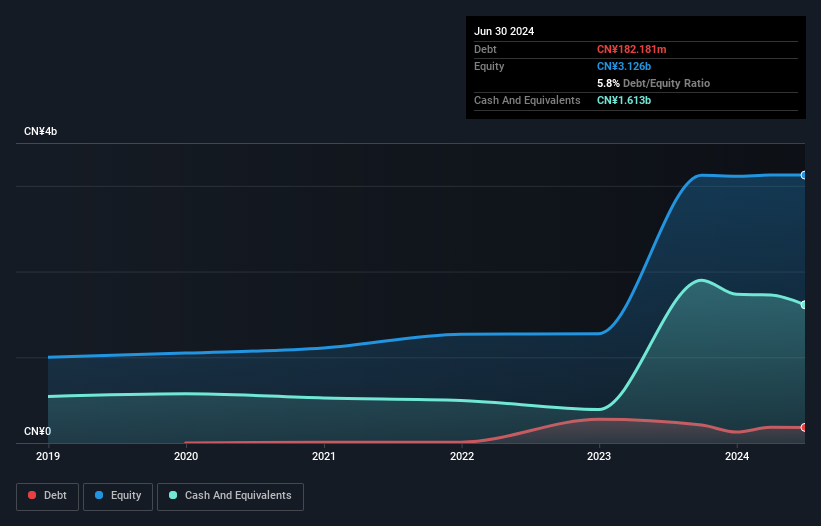Is GrandiT (SHSE:688549) Using Debt Sensibly?
The external fund manager backed by Berkshire Hathaway's Charlie Munger, Li Lu, makes no bones about it when he says 'The biggest investment risk is not the volatility of prices, but whether you will suffer a permanent loss of capital.' It's only natural to consider a company's balance sheet when you examine how risky it is, since debt is often involved when a business collapses. Importantly, GrandiT Co., Ltd. (SHSE:688549) does carry debt. But the more important question is: how much risk is that debt creating?
When Is Debt A Problem?
Debt is a tool to help businesses grow, but if a business is incapable of paying off its lenders, then it exists at their mercy. In the worst case scenario, a company can go bankrupt if it cannot pay its creditors. However, a more common (but still painful) scenario is that it has to raise new equity capital at a low price, thus permanently diluting shareholders. Of course, debt can be an important tool in businesses, particularly capital heavy businesses. When we think about a company's use of debt, we first look at cash and debt together.
View our latest analysis for GrandiT
How Much Debt Does GrandiT Carry?
You can click the graphic below for the historical numbers, but it shows that GrandiT had CN¥182.2m of debt in June 2024, down from CN¥209.0m, one year before. But it also has CN¥1.61b in cash to offset that, meaning it has CN¥1.43b net cash.

How Healthy Is GrandiT's Balance Sheet?
Zooming in on the latest balance sheet data, we can see that GrandiT had liabilities of CN¥617.7m due within 12 months and liabilities of CN¥165.3m due beyond that. Offsetting this, it had CN¥1.61b in cash and CN¥339.0m in receivables that were due within 12 months. So it can boast CN¥1.17b more liquid assets than total liabilities.
This surplus suggests that GrandiT has a conservative balance sheet, and could probably eliminate its debt without much difficulty. Succinctly put, GrandiT boasts net cash, so it's fair to say it does not have a heavy debt load! There's no doubt that we learn most about debt from the balance sheet. But you can't view debt in total isolation; since GrandiT will need earnings to service that debt. So when considering debt, it's definitely worth looking at the earnings trend. Click here for an interactive snapshot.
In the last year GrandiT wasn't profitable at an EBIT level, but managed to grow its revenue by 12%, to CN¥951m. That rate of growth is a bit slow for our taste, but it takes all types to make a world.
So How Risky Is GrandiT?
Although GrandiT had an earnings before interest and tax (EBIT) loss over the last twelve months, it made a statutory profit of CN¥18m. So taking that on face value, and considering the cash, we don't think its very risky in the near term. We'll feel more comfortable with the stock once EBIT is positive, given the lacklustre revenue growth. When analysing debt levels, the balance sheet is the obvious place to start. However, not all investment risk resides within the balance sheet - far from it. For example - GrandiT has 1 warning sign we think you should be aware of.
When all is said and done, sometimes its easier to focus on companies that don't even need debt. Readers can access a list of growth stocks with zero net debt 100% free, right now.
Have feedback on this article? Concerned about the content? Get in touch with us directly. Alternatively, email editorial-team (at) simplywallst.com.
This article by Simply Wall St is general in nature. We provide commentary based on historical data and analyst forecasts only using an unbiased methodology and our articles are not intended to be financial advice. It does not constitute a recommendation to buy or sell any stock, and does not take account of your objectives, or your financial situation. We aim to bring you long-term focused analysis driven by fundamental data. Note that our analysis may not factor in the latest price-sensitive company announcements or qualitative material. Simply Wall St has no position in any stocks mentioned.
 Index Options
Index Options CME Group
CME Group Nasdaq
Nasdaq Cboe
Cboe TradingView
TradingView Wall Street Journal
Wall Street Journal